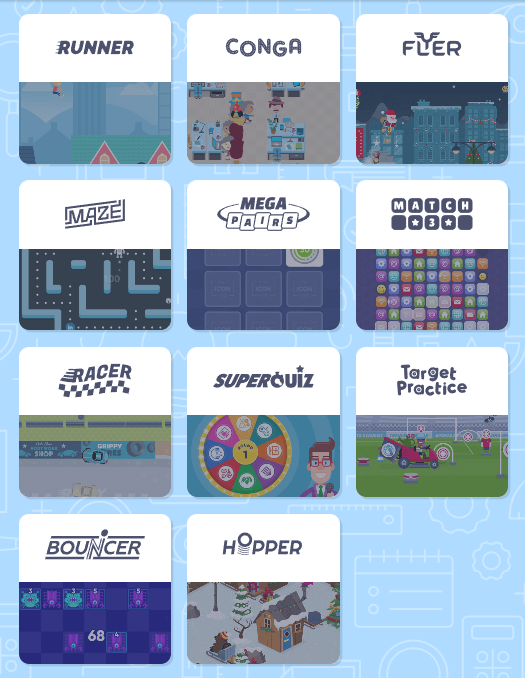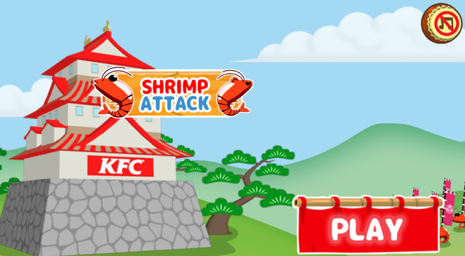
White label solutions allow companies to use their own brand identity to offer a desirable gaming platform to the online gaming community, while avoiding significant development costs. This focus on branding and marketing instead of development increases the chances that the game will be highly popular and widely played. Basically, what this means: It is when one company its product from another company, with all legal rights on it, and rebrands that product as their own.
What is White Labeling: The Definition
This strategy allows the brand leveraging the white label product or service to customize and offer it as if it were their own, without the need to invest in developing the product or infrastructure themselves. White labeling is widely appreciated for its cost-effectiveness and efficiency, enabling companies to expand their product lines and enter new markets with reduced risk and investment.
A classic example of white labeling can be found in:
- Grocery sector, where supermarket chains sell products ranging from cereals to cleaning supplies under their own brand names, even though these goods are manufactured by third-party companies. These products are typically positioned as more affordable alternatives to national brands, appealing to cost-conscious consumers while enhancing the retailer’s brand loyalty and product diversity.
- Software industry, particularly within the realms of Software as a Service (SaaS). Here, developers create applications or platforms that are then rebranded and offered by other businesses to their clients. This practice is common in digital marketing tools, customer relationship management (CRM) systems, and even mobile applications.
For instance, a digital marketing agency might utilize a white-labeled platform to provide SEO or social media management services under its own brand, even though the technology powering these services is developed and maintained by another company. This enables the agency to offer a broader range of services and strengthens its brand presence in the market, all while leveraging the expertise and technological innovation of the original developer.
Types of Business Using White Labeling
Here’s an ordered list of types of businesses frequently utilizing white labeling, along with a brief description of each:
- Software and Technology: Many tech companies, especially in the SaaS (Software as a Service) space, use white labeling to offer customizable software solutions that clients can brand as their own. This includes CRM systems, marketing automation tools, and even mobile apps. The key difference here is the focus on digital products, scalability, and subscription-based models.
- iGaming: This sector refers to businesses offering white-labeled online gambling and betting platforms, where a provider develops the gaming software and infrastructure which other companies brand as their own. The iGaming industry is distinct for its focus on digital entertainment, high user engagement, and regulatory scrutiny. It encompasses a range of products including online casinos, sports betting, and lottery games. Key differences in this industry include the critical need for gaming licenses, adherence to international gambling laws, and the importance of robust, secure, and fair gaming platforms.
- Retail and Consumer Goods: Retailers and online stores often sell products manufactured by others under their own brand name. This includes a wide range of items from clothing and accessories to electronics. The main distinction in this category is the focus on physical goods and the necessity of managing inventory and logistics.
- Food and Beverages: Companies in this sector, including grocery stores and restaurants, may offer white-labeled products ranging from packaged foods to dietary supplements. Unlike technology-focused white labeling, this requires strict quality control and compliance with food safety regulations.
- Financial Services: Banks and financial institutions frequently use white labeling for services like payment processing, credit card issuing, and even investment platforms. This sector stands out due to its high regulatory requirements and the importance of security and trust.
- Healthcare and Pharmaceuticals: This includes the white labeling of medications, health supplements, and even medical devices. Businesses in this sector must navigate stringent regulatory environments, making their operations significantly different from other white-labeled business models.
The primary differences between these types of businesses using white labeling lie in the nature of the products or services offered, the regulatory landscape, the focus on digital vs. physical goods, and the level of customization allowed. While tech companies often emphasize scalability and customization, consumer goods focus more on branding and retail strategies. Meanwhile, financial services and healthcare prioritize compliance and security, highlighting the diverse strategies and considerations across white-labeled businesses.
iGaming Industry White Labeling
Unlike other sectors, the iGaming industry requires specialized knowledge in gaming software, an understanding of player behavior, and a commitment to responsible gambling practices. This makes the iGaming white label model uniquely challenging but also lucrative, given the global demand for online entertainment and betting services.
White Label Casino Games
Two examples of companies that offer white label solutions for casino platforms are EveryMatrix and SoftSwiss.
- EveryMatrix provides a comprehensive white label solution that includes a wide range of casino games from various developers, payment processing, and licensing services.
- SoftSwiss is another notable provider offering a robust white label casino solution that encompasses game aggregation, payment systems integration, and assistance with obtaining gambling licenses, catering to clients looking to launch their online casino quickly and efficiently. Both of these companies specialize in the creation and distribution of white label casino platforms, allowing clients to launch their own branded online casinos with minimal effort and investment.

White Label Computer Games and Mobile Apps
White label products are gaining popularity as businesses recognize the potential for mobile/online games to serve as a form of advertising. They purchase ready-to-use game solutions with their own brand name and image, resulting in the creation of advergames.
Games developed by white label companies
White label options provide a solution for customers who want to concentrate on marketing and branding while letting developers handle technical aspects. In the gaming industry, white label products are gaining popularity as businesses recognize the potential for mobile/online games to serve as a form of advertising. They purchase ready-to-use game solutions with their own brand name and image, resulting in the creation of advergames.
Successful white label development in gaming industry can be seen with companies like Skillz, KamaGames, Unity Technologies, Play’n GO, and MGA Games. These providers offer platforms for game development and distribution, customized with the branding and design of the client. Skillz specializes in mobile games, while KamaGames and Play’n GO focus on casino games. Unity Technologies provides solutions for virtual reality games, and MGA Games offers a variety of online and mobile games. These companies have been successful in helping their clients enter the gaming market quickly and cost-effectively, without the need for in-house game development expertise.
In the gaming industry, white label development can encompass a broad range of game genres, including action, adventure, strategy, puzzle, and simulation. Nevertheless, some genres have proven more successful in white label development:
- Casual Games: Simple and easy-to-play games that are designed to be accessible to a broad audience. They usually have a low learning curve, making them ideal for white label development as they can be easily customized for different clients and target audiences
- Puzzle Games: Games that challenge players to solve puzzles and complete levels. Puzzle games are popular in white label development because they offer high replayability and can be easily customized to different themes and styles.
- Strategy Games: Games that require players to make strategic decisions and plan ahead to succeed. White label development companies often create strategy games because they offer a high level of depth and can be tailored to different target audiences, including casual or hardcore gamers.
- Simulation Games: Games that simulate real-world scenarios and environments. Simulation games are popular in white label development due to their high level of customization and adaptability to different themes and settings, such as city-building, farming, or aviation.

Advergames
Advergames, also known as branded games, offer an effective way for businesses to reach new clients and increase engagement. Thanks to growing popularity of gaming and advancements in technology, creating these games is now more affordable and accessible. White-label platforms make it easy and cost-effective for brands or loyalty program operators to take advantage of the benefits of advergames. These games provide a reward and experience that appeals to both emotions and practicality. They are enjoyable, fulfilling, and create a lasting impact. However, some white-label game platforms may lack variety or have average quality games, despite offering a large selection.
Key Features of Advergames:
- Free to Play and Mobile-Oriented: Most advergames are free to play and designed for mobile devices to reach a wider audience.
- Microsites or Landing Pages: Advergames are often hosted on microsites or landing pages that are easily shared through various channels such as social media, websites, and newsletters.
- Casual or Hyper-Casual Games: Due to their mobile focus, advergames tend to fall under the casual or hyper-casual category, with simple gameplay and a low learning curve.
- High Attention and Engagement: Advergames generate higher attention, engagement, and positive connection as audiences actively choose to play them.
- Customizable: Advergame publishers offer customization options, allowing advertisers to incorporate their brand style into the game’s design and mechanics, either through building from scratch or using templates.
It’s worth noting that these genres may still have a niche audience, and a well-made text-based, turn-based, point-and-click, or virtual pet game can still be successful in the white label development market. However, these genres may not have the same level of widespread appeal as the more popular genres of casual, puzzle, strategy, and simulation games. Ultimately, the success of a game in the white label development market will depend on factors such as quality, target audience, marketing, and overall design, rather than just the genre.
The growth of white label development in the gaming industry has been propelled by the rise of mobile gaming. A study by App Annie revealed that mobile gaming generated $86 billion in 2020 and is forecasted to surpass $100 billion by 2023. Additionally, the rise in white label development can be attributed to the growing demand for gaming apps among consumers. Newzoo’s survey indicates that the number of mobile gamers is estimated to reach 2.7 billion in 2021, and mobile gaming contributes to 45% of all gaming revenue.
Despite the growth in the white label development of games, there are still some challenges that need to be addressed. One major challenge is to maintain the quality and attain success for the game being developed. According to a study by Adjust, the typical lifespan of a mobile game is merely 30 days and the majority of these games generate less than $5,000 in terms of revenue. To tackle these challenges, white label game developers must concentrate on developing games that are of high quality and appealing to their target audience. They must also make sure that the game has proper monetization and marketing strategies in place to enhance its chances of success.
Examples
KFC shrimp attack

Gamify was approached by KFC Japan to develop a smartphone game to generate excitement for their new shrimp menu item. The game, named “Shrimp Attack,” tasked players with defending the KFC offices by swatting away attackers with shrimp strips. KFC promoted the game through social media and it became a huge hit, attracting over 800,000 players and 600 hours of gameplay. The success of the game was evident when 22% of players redeemed their reward coupon at a KFC location. However, the promotion had to be cut short due to the high demand for the shrimp menu item causing product shortage.
Wendy’s Smoky Shroom Sprint
Wendy’s wanted to bring attention to their new mushroom burger and “Catch the Human” television ad campaign. They aimed to make a game that would be played and shared as frequently as possible on social media. In an endless running game created by Wendy’s, you took on the role of “Wendy” and had to race through the woods, jump over logs, duck under trees, avoid netted traps, and of course, gather hamburgers. The game was playable on a computer, tablet, and mobile device from any location in the world. In comparison to their past marketing initiatives, this game garnered over 4 times as many social shares from Wendy’s.
Sage Intacct’s Snowball Game
Sage aimed to create a holiday game that would not only entertain their audience but also encourage them to vote for their preferred charity. The solution was a snowball game with multiple levels. Players had to complete the game and submit their email address in order to cast their vote for the charity of their choice. At the end of the campaign, Sage would donate a grant to the charity that received the most votes. The game was a huge success, raising tens of thousands of dollars and attracting thousands of players.
Pros & Cons of White Labeling:
Benefits:
- Cost-effective: White labeling eliminates the costs associated with creating, producing, and marketing a product, making it a cost-effective option for businesses, especially small firms.
- Faster to market: White labeling allows for a faster launch as the product is already developed and can be quickly rebranded and marketed.
- Lower risk: By reducing the costs associated with product development, white labeling reduces the risk of starting a business.
- Greater adaptability: White labeling offers greater flexibility, allowing companies to modify the packaging, branding, and marketing of the product to better suit their target market.
- Better quality control: White labeling ensures better quality control as the white label manufacturer is likely to have a higher quality control process and a staff of quality control specialists.
Drawbacks:
- Limited customization: White labeling may limit the ability to fully customize the product as per the limitations imposed by the white label supplier.
- Pricing competition: There may be a pricing war with other producers who market the same item under a different name.
- Dependent on supplier: Order fulfillment is dependent on the supplier and may be affected if something goes wrong at their factory or if shipping takes too long.
So, is it worth to try?
White label game development offers businesses a cost-effective way to bring their own branded games to their customers. With the rapid growth of mobile gaming, white label development is poised to remain a popular trend in the industry. However, it is crucial for both the development company and the client to be mindful of the potential benefits and obstacles and to collaborate closely to guarantee the game’s success.




